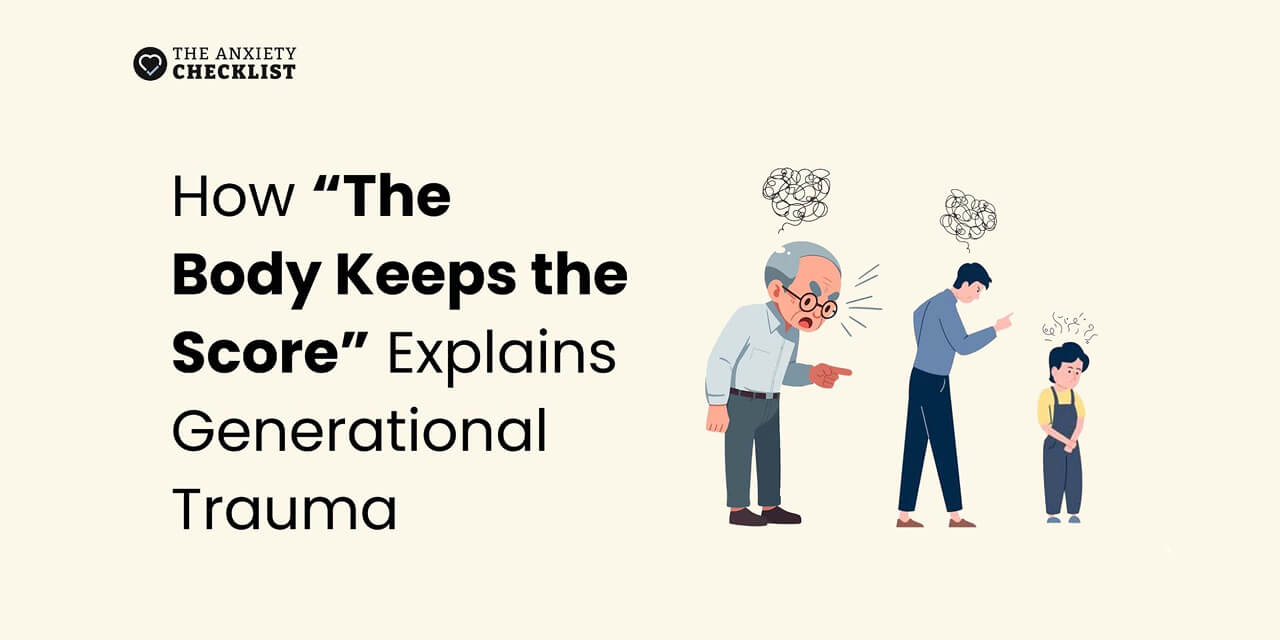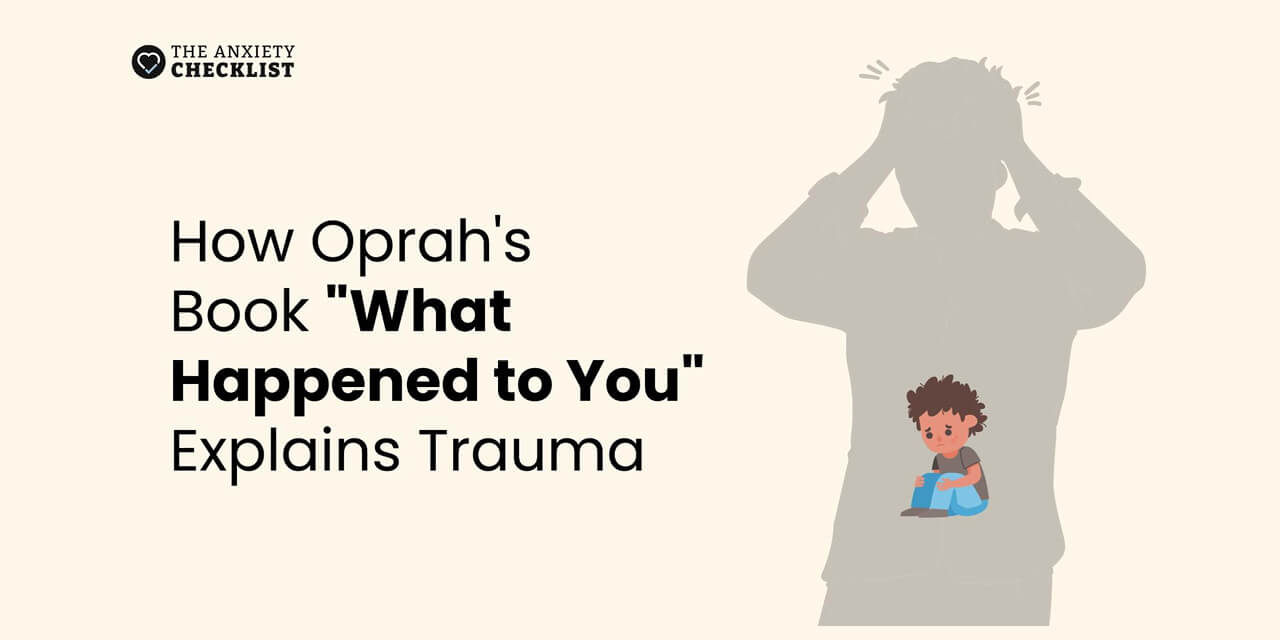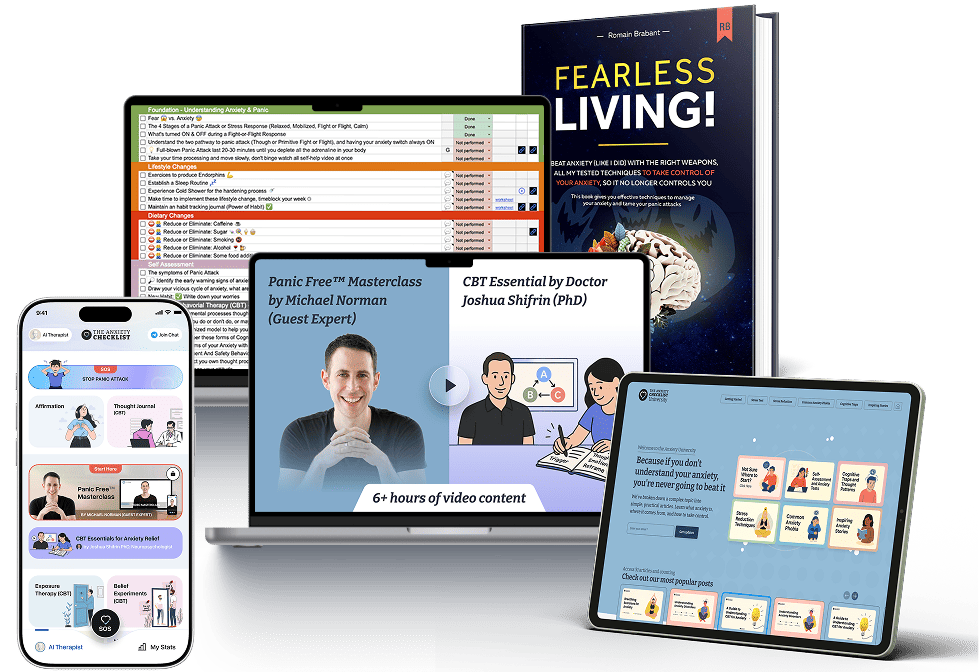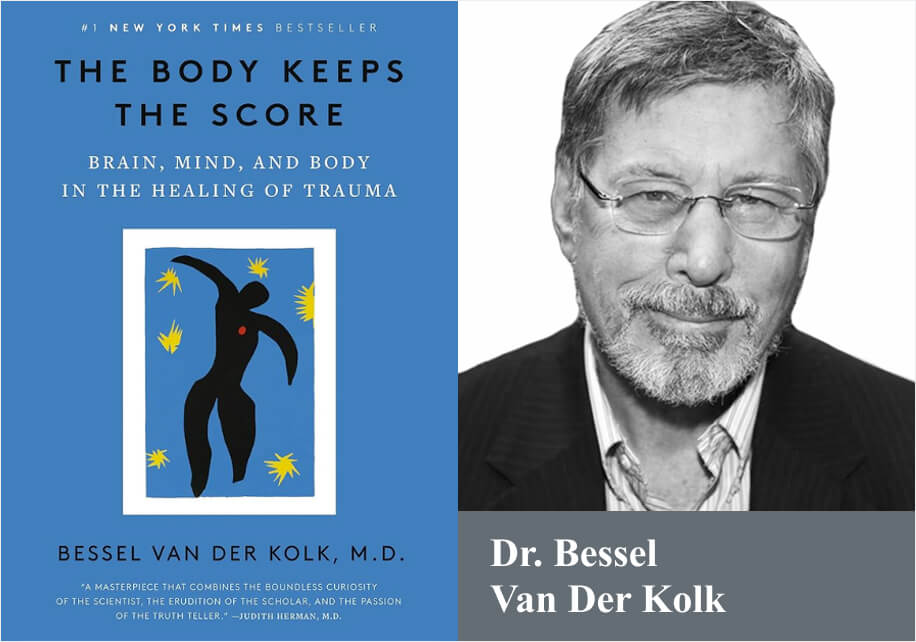
Here, we’ll relate key insights from van der Kolk’s work to how generational trauma echoes through families and explain what it takes to heal, especially when the pain didn’t start with you.
When anxiety hits, do you know what to do next?
Learn how to calm your body, interrupt fear loops, and regain control step by step.
What Is Generational Trauma?
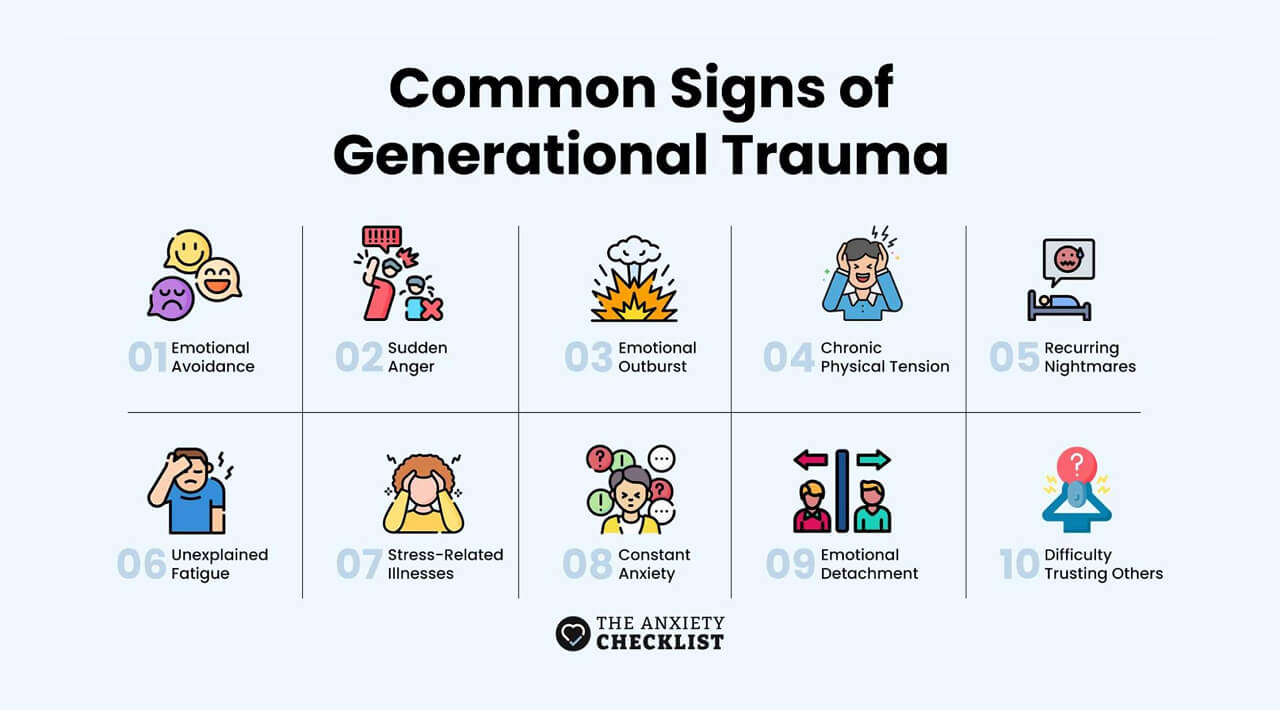
Generational Trauma Vs. Personal Trauma
Recognizing Patterns of Generational Trauma in Your Life
Generational trauma often whispers through patterns. It doesn’t always announce itself loudly. It repeats itself through these 3 key patterns:
1. Emotional Pattern
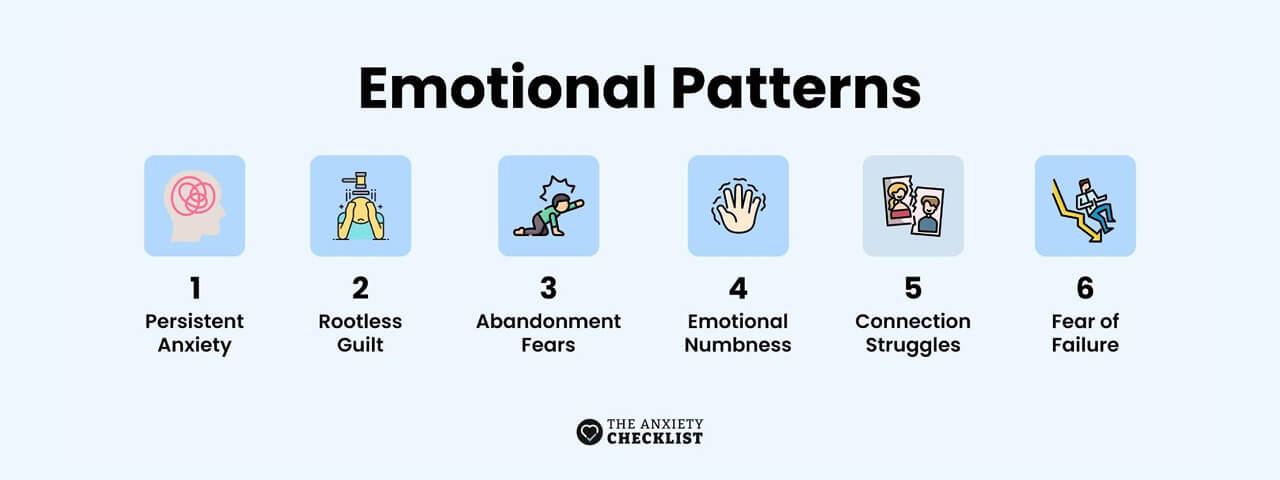
You may find yourself feeling things that don’t quite make sense given your life history. This could look like:
These emotions may have less to do with your personal past and more to do with your family’s emotional inheritance.
2. Behavioral Pattern
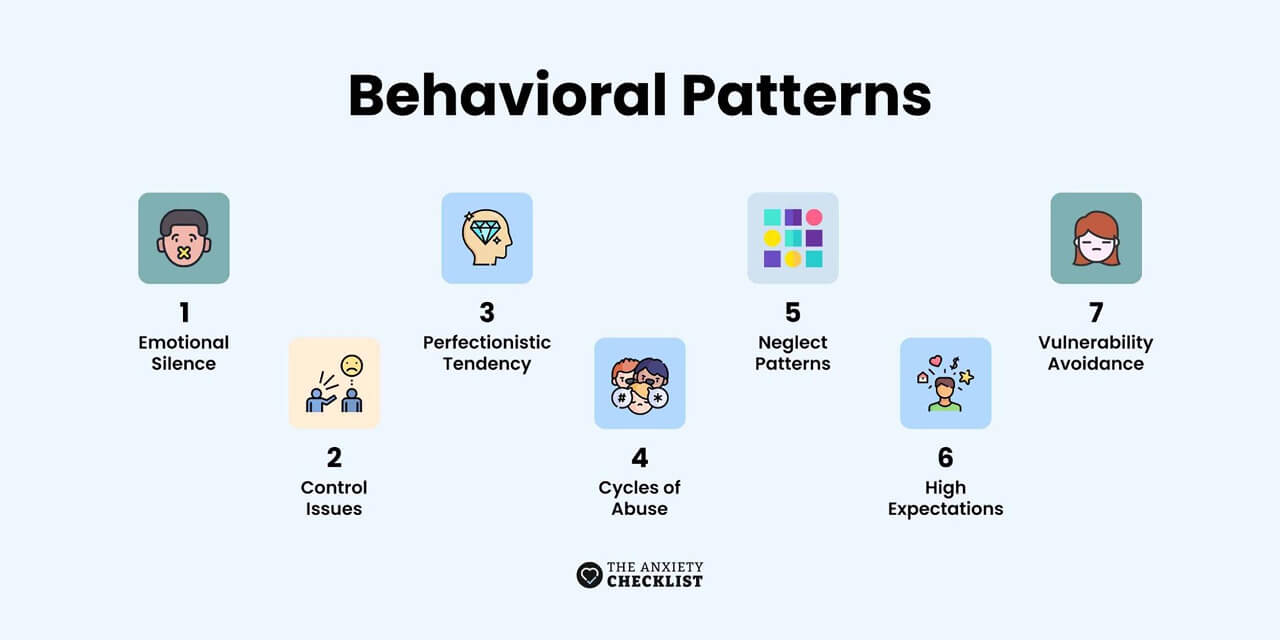
Trauma often echoes across generations through behaviors your family normalizes, avoids, or repeats without question. Here are the behavioral patterns to look out for:
These behaviors may seem “normal” within your family, but they can be signs of unresolved trauma that was passed down.
3. Physiological Pattern
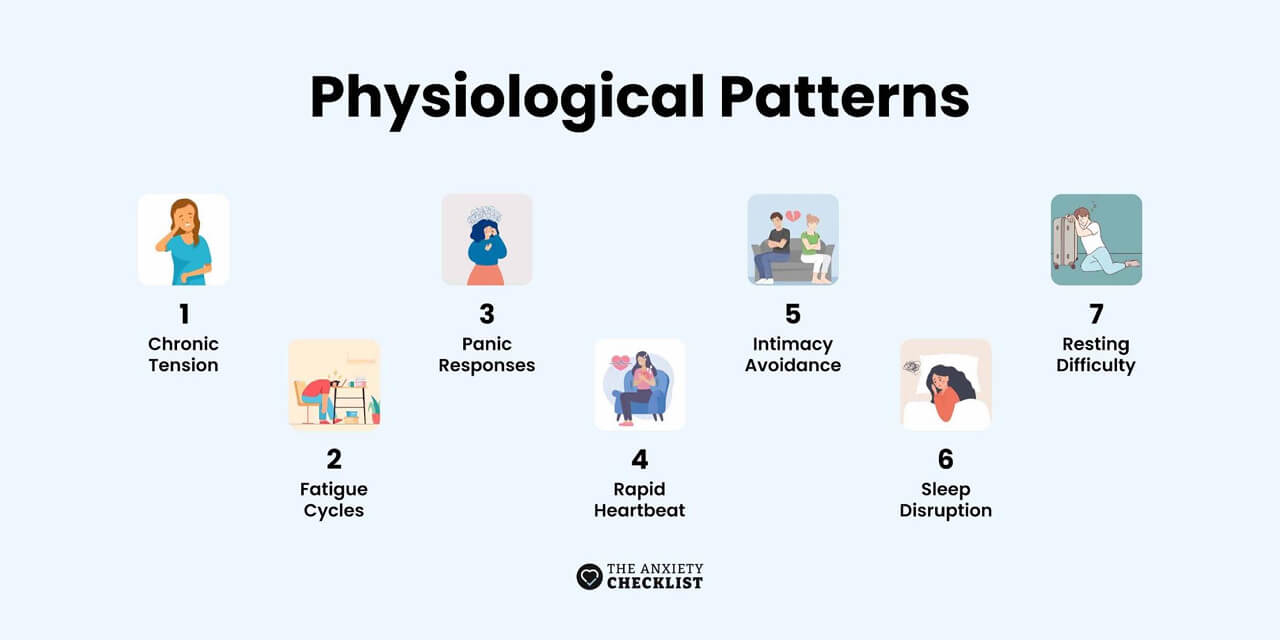
Your nervous system may react to inherited survival patterns even when there’s no threat present. It can manifest through the following physical signs:
These behaviors may seem “normal” within your family, but they can be signs of unresolved trauma that was passed down.
The Biology of Generational Trauma
Trauma doesn’t just stay in your head; it also leaves its mark on your body. According to Dr. Bessel van der Kolk, trauma rewires the brain, alters the nervous system, and shapes how you respond to stress and connection.
Here are a few points to note about how generational trauma affects different parts of your body:
Body Memory
Van der Kolk explains that when trauma isn’t processed, it can manifest as somatic memory. This can show up as chronic tension, digestive issues, emotional numbness, or overreactions to small triggers.
Nervous System
Trauma can lead to chronic dysregulation of stress hormones, keeping your nervous system on high alert. When your body is on high alert, it can lead to hypervigilance, difficulty relaxing, and a constant sense of danger, even in a safe environment.
Brain Function
Brain scans of trauma survivors show reduced activity in areas responsible for:
Genetics
Key Factors That Sustain Generational Trauma
Trauma cycles persist in families for many reasons. These patterns are often passed down unknowingly, creating a legacy of unresolved pain and emotional scars across generations.
To break the cycle, it’s important to acknowledge these patterns, seek understanding, and begin the journey of healing. Here are some of the primary factors that keep trauma alive across generations:
Silence and Shame
In many families, trauma is either not discussed or is actively hidden. Silence and secrecy create an atmosphere where trauma remains unaddressed, preventing emotional wounds from healing.
The shame associated with the trauma often leads to a fear of speaking out, which perpetuates the cycle. As a result, future generations may inherit the belief that talking about pain is unsafe or taboo, which makes it even harder to start healing.
Lack of Support
Many families don’t have the emotional tools or vocabulary to process and talk about trauma. Without the ability to express your feelings or articulate the pain, emotional pain often becomes internalized and manifests in destructive behaviors.
This inability to communicate emotions effectively can prevent you from healing properly, and this may cause the trauma to be passed down as children inherit these unspoken emotional patterns.
Denial
In some cultures, trauma is downplayed or even denied. The idea or belief that certain events, like abuse or loss, aren’t traumatic can hinder the healing process. This reinforces the notion that these experiences are simply to be “survived” rather than processed.
When trauma is minimized by a larger community or culture, it leaves little room for you to address it healthily, enabling the cycle to remain unchecked.
Healing From Generational Trauma
Breaking the cycle of generational trauma is no small feat. When you’re the first in your family to recognize and confront trauma, the journey toward healing can feel overwhelming.
The Body Keeps the Score highlights a range of healing strategies that address the emotional, physical, and psychological impacts of trauma. Here’s how you can begin to break the trauma cycle:
1. Self-Awareness, Journaling, and Community
2. Cognitive Behavioral Therapy (CBT)
CBT is widely known for its effectiveness in addressing trauma, including generational trauma. However, the book emphasizes a solid point that trauma survivors often can’t access rational thinking when triggered.
This then makes it difficult for anyone to benefit from CBT treatment alone. While CBT focuses on changing thought patterns, it becomes more effective when combined with techniques like:
This is why cognitive therapy, though valuable, may need to be paired with body-based therapies to address anxiety at its roots. When you feel safe, CBT can help you reframe traumatic experiences and develop healthier cognitive patterns.
3. Body-Based Healing Methods
Body-based methods and lifestyle changes play a key role in helping people with trauma re-establish control over their nervous system and physical reactions. These techniques can help reconnect you to your body to promote healing:
4. Supportive Therapy
5. Choice, Safety, and Connection
Finally, van der Kolk emphasizes these principles as a necessity for trauma recovery:
Here are a few more actionable steps to take to facilitate healing:
Why You Should Read ‘The Body Keeps the Score’
If you're healing from trauma or anxiety, or working as a therapist, this book offers a more compassionate, science-based, and holistic view of mental health. It also explains the ‘why’ behind traumatic symptoms.
Additionally, Dr. Van Der Kolk challenges cognitive therapy models, making the case for a mind-body revolution in healing. This book explains why body-based therapies, when combined with CBT, can lead to more effective, lasting recovery.
Here is a video of Dr. Van Der Kolk discussing how the body stores trauma and his book ‘The Body Keeps the Score’. This gives you a gist of the physiology of trauma and the pathway to healing:
How This Helps with Anxiety
The book can help you understand how generational trauma is a hidden force contributing to anxiety. Exploring this concept provides clarity on why anxiety may stem from past emotional wounds, rather than being a personal flaw.
Here's how the book helps with anxiety:
Frequently Asked Questions
Conclusion
Previous Article
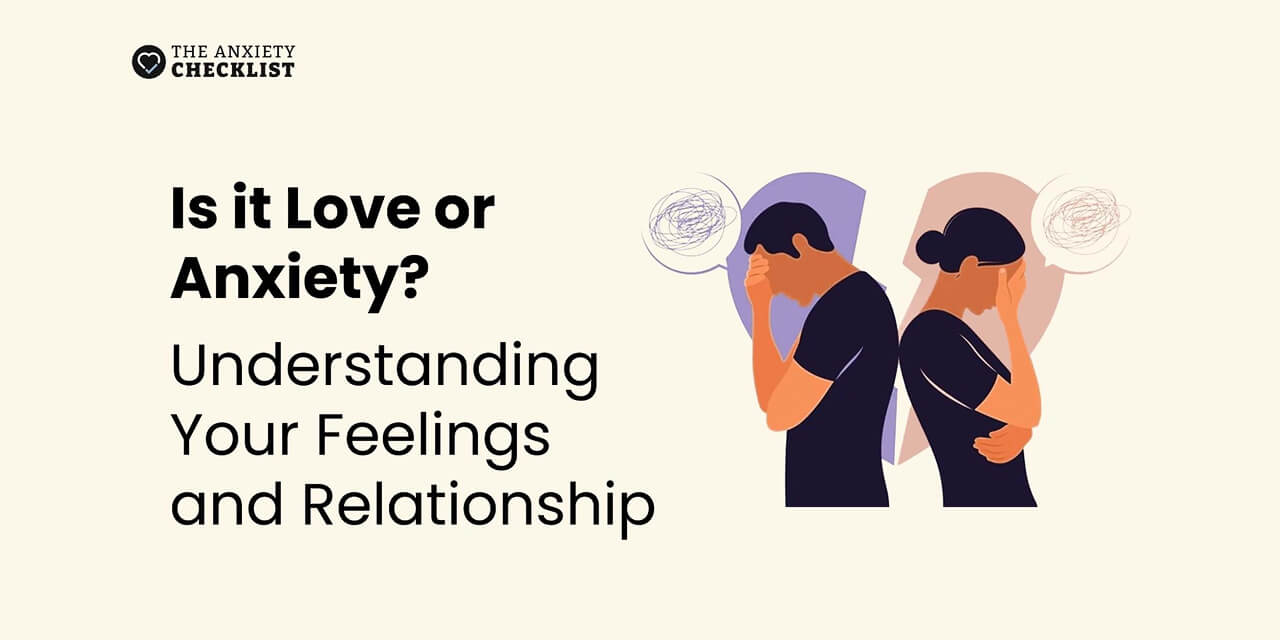
Is It Love or Anxiety? Understanding Feelings & Relationship
If you are in a crisis or any other person may be in danger - don't use this site. These resources can provide you with immediate help.



